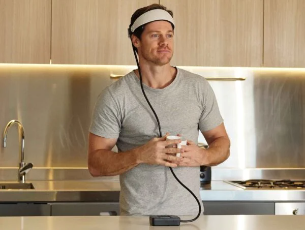Living with depression can be a lonely road. The worst part is the sense of paralyzing helplessness you feel. It is an invisible condition, which makes it hard to explain to others who don’t understand it.
There is also a perception out there that depression isn’t real and that people who experience need to ‘snap out of it’ and get on with their lives. In severe cases, patients with depression are prescribed antidepressants. But there are other alternative ways to get rid of your depression. Some patients have seen great success with IV ketamine therapy, while others prefer more traditional treatments.
Recently, the path toward holistic treatment has shown great results, and if you’re interested, massage, osteopathy and physiotherapy at Brixton Therapy Centre can help you. Therapy centers dig deep into the roots of your condition to come up with an effective treatment plan. It may include muscle manipulation, stretching exercises, reducing inflammation and joint pains, or even referring you to their roster of experts.
1. Herbal medicines
The herbs that grow around us have properties that go far beyond flavoring our food. They have been used for medicinal purposes for thousands of years. In recent times, there is a growing demand for a return to these more natural approaches.
St. John’s wort is a common herbal remedy used for treating depression. Many users have reported an improvement in their symptoms despite there being no scientific evidence of its effectiveness in treating depression.
Ginkgo biloba is used to boost the memory and other intellectual processes in the brain. Many people who experience brain fog as part of their depression report that it helps to keep them mentally alert. There is some evidence that gingko biloba can help, but it remains inconsistent.
Lavender and chamomile flowers have also been used for many years to calm the nerves and bring relaxation. That’s why you’ll often see them as ingredients for teas, as scents for oils used in diffusers, and even perfumes. Both flowers can help reduce depressive mood, helps normalize blood pressure, balance cortisol levels, and activate oxytocin neurons.
2. Cannabinoids
There has been growing interest in the cannabis plant and its effects on the body in recent years. CBD or cannabidiol has become the subject of a lot of new medical research. Scientists are working to discover what it is about the substance that has many people praising it as a medicinal alternative. It should be borne in mind that CBD is different from THC (tetrahydrocannabinol). The latter is the psychoactive compound in marijuana that is believed to be habit-forming.
Users report the effectiveness of CBD in the alleviation of pain, inflammation, anxiety, insomnia, and depression. The evidence is predominantly anecdotal, which is why there are so many ongoing studies.
CBD interacts with the endocannabinoid system in the body. This system produces CBD naturally in the body. Endocannabinoids are believed to attach themselves to receptors in the brain and precipitate the brain’s manufacture of serotonin. A serotonin imbalance contributes significantly to depression.
The way CBD interacts with the serotonin in the body help regulate mood, appetite, and, more importantly, sleep, thereby giving patients a more revitalized body and optimistic view of the world. The promising results of initial studies for CBD have given new hope to patients not just of depression but also of other conditions like rheumatoid arthritis and osteoarthritis.
3. Acupuncture
The use of acupuncture has been a part of Chinese medicinal customs for centuries. To the outsider, it might look like a painful experience. It might also look like it’s done randomly, which couldn’t be further from the truth. Acupuncture is systematic and requires great precision.
During acupuncture, thin needles are inserted into designated places in the body. The acupuncturist is well-trained in knowing where the points in the body are and how to insert the needles. The logic behind acupuncture is that the insertion of the needles prompts the body to produce chemicals that reduce the sensation of pain.
Among these chemicals are those that affect mood. This makes acupuncture a potentially powerful therapy for people with depression..
Many people are confused about how acupuncture can help. It is because not many are aware that chronic pain is the root cause for generalized anxiety disorder (GAD), which may result in depression. When the body is in pain, it may hinder anyone from accomplishing fruitful tasks, and this diminishes the sense of self-worth.
4. Yoga and meditation
A lot of people believe that meditation and yoga are a bunch of hocus pocus that won’t help them. However, those that have tried it swear by it. A depressed person experiences a lot of negative thoughts. It’s hard to banish these thoughts. However, meditation can help as it is about clearing the mind. Meditation is an altered state of consciousness, much like sleep. But unlike sleep, meditation is purposeful.
Yoga teaches breathing techniques that people with depression can use to calm themselves when they feel anxious. Those who are depressed and struggling to cope with anxiety can learn breathing-based meditation and yogic practices from yogihearts.com and make themselves feel more comfortable and relaxed.
5. Massage and reflexology
The act of massage triggers the body to release serotonin and dopamine. These neurotransmitters are associated with improved mood. Massage also decreases the levels of cortisol, better known as the stress hormone, in the body. Massage reduces pain and improves sleep quality too.
A reflexologist focuses on pressure points in the hands and feet in the belief that the body can heal itself if stimulated to do so. The nerves in your hands and feet are connected to various parts of the body. It is the premise of reflexology that applying pressure to the hands and feet stimulates these nerves.













